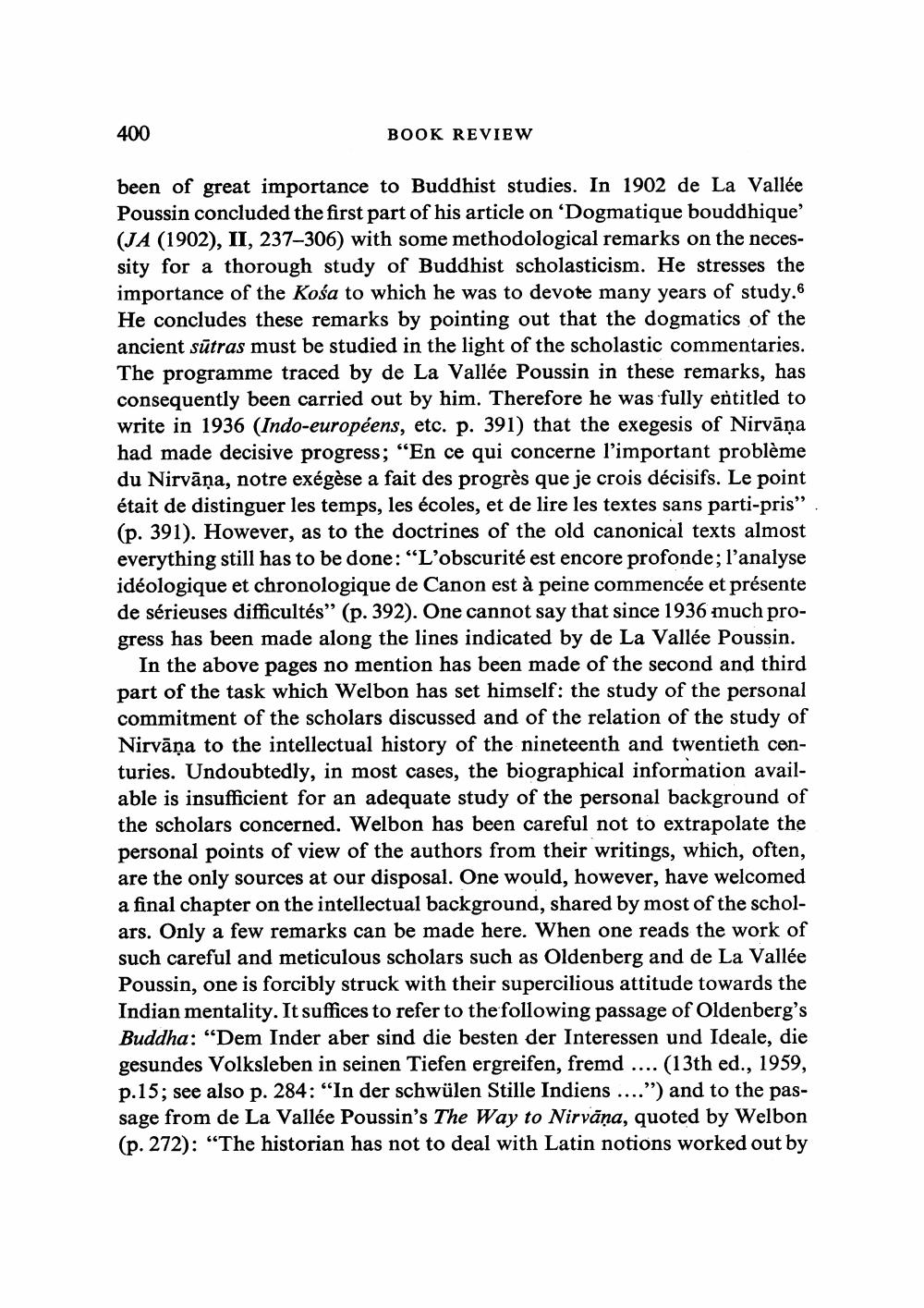Book Title: Book Review Of Buddhist Nirvana And Its Western Interpreters Author(s): Publisher: View full book textPage 5
________________ 400 BOOK REVIEW been of great importance to Buddhist studies. In 1902 de La Vallee Poussin concluded the first part of his article on 'Dogmatique bouddhique' (JA (1902), II, 237-306) with some methodological remarks on the necessity for a thorough study of Buddhist scholasticism. He stresses the importance of the Kosa to which he was to devote many years of study. 6 He concludes these remarks by pointing out that the dogmatics of the ancient sutras must be studied in the light of the scholastic commentaries. The programme traced by de La Vallee Poussin in these remarks, has consequently been carried out by him. Therefore he was fully entitled to write in 1936 (Indo-europeens, etc. p. 391) that the exegesis of Nirvana had made decisive progress; "En ce qui concerne l'important probleme du Nirvana, notre exegese a fait des progres que je crois decisifs. Le point etait de distinguer les temps, les ecoles, et de lire les textes sans parti-pris". (p. 391). However, as to the doctrines of the old canonical texts almost everything still has to be done: "L'obscurite est encore profonde; l'analyse ideologique et chronologique de Canon est a peine commencee et presente de serieuses difficultes" (p. 392). One cannot say that since 1936 much progress has been made along the lines indicated by de La Vallee Poussin. In the above pages no mention has been made of the second and third part of the task which Welbon has set himself: the study of the personal commitment of the scholars discussed and of the relation of the study of Nirvana to the intellectual history of the nineteenth and twentieth conturies. Undoubtedly, in most cases, the biographical information available is insufficient for an adequate study of the personal background of the scholars concerned. Welbon has been careful not to extrapolate the personal points of view of the authors from their writings, which, often, are the only sources at our disposal. One would, however, have welcomed a final chapter on the intellectual background, shared by most of the scholars. Only a few remarks can be made here. When one reads the work of such careful and meticulous scholars such as Oldenberg and de La Vallee Poussin, one is forcibly struck with their supercilious attitude towards the Indian mentality. It suffices to refer to the following passage of Oldenberg's Buddha: "Dem Inder aber sind die besten der Interessen und Ideale, die gesundes Volksleben in seinen Tiefen ergreifen, fremd .... (13th ed., 1959, p.15; see also p. 284: "In der schwulen Stille Indiens ....") and to the passage from de La Vallee Poussin's The Way to Nirvana, quoted by Welbon (p. 272): "The historian has not to deal with Latin notions worked out byPage Navigation
1 ... 3 4 5 6 7 8
